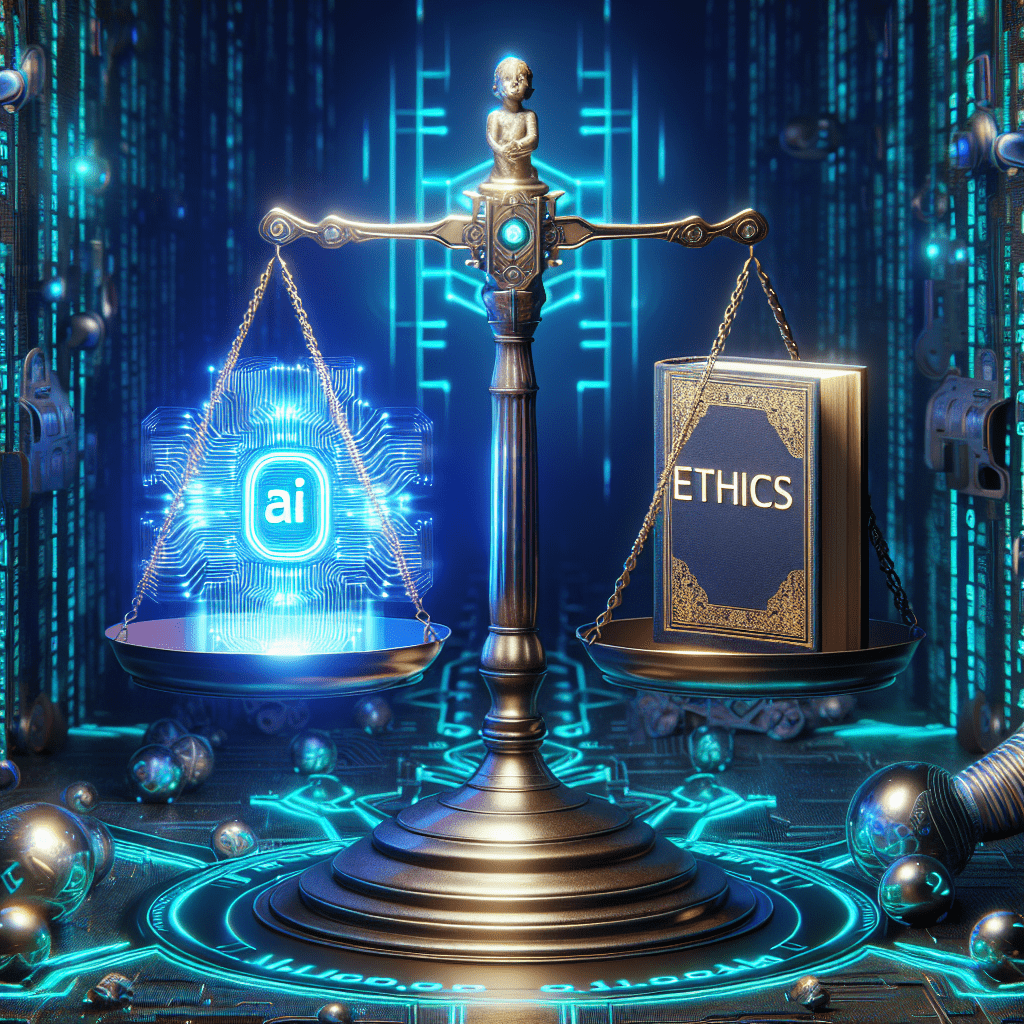Artificial Intelligence (AI) has become an integral part of our daily lives, from virtual assistants like Siri and Alexa to self-driving cars and predictive algorithms. While AI has the potential to revolutionize industries and improve efficiency, there is an ongoing debate about the need for regulation to address ethical concerns and potential risks associated with AI technologies.
The Need for AI Regulation
Advocates for AI regulation argue that without proper oversight, AI systems could pose significant risks to society. These risks include biases in AI algorithms, privacy violations, job displacement, and even the potential for autonomous weapons. Regulation is seen as a way to ensure that AI technologies are developed and used responsibly.
One of the primary ethical concerns surrounding AI is the issue of bias in algorithms. AI systems are only as good as the data they are trained on, and if that data is biased, the AI system can perpetuate and even amplify existing biases. This has implications for important decisions in areas such as hiring, lending, and criminal justice.
Privacy is another major concern when it comes to AI. As AI systems become more sophisticated and capable of analyzing vast amounts of data, there is a risk that personal information could be misused or compromised. This is especially concerning in sectors like healthcare and finance, where sensitive personal information is involved.
Challenges of AI Regulation
While there is a consensus on the need for AI regulation, there are challenges in implementing effective regulations. One of the main challenges is the rapid pace of AI innovation. Technology is advancing at a breakneck speed, making it difficult for regulators to keep up with the latest developments in AI.
Another challenge is the complexity of AI systems. AI technologies are often opaque and difficult to understand, even for experts. This makes it challenging to regulate AI systems effectively, as regulators may not fully grasp how these systems work or the potential risks they pose.
Striking a Balance
Finding the right balance between fostering innovation and addressing ethical concerns is crucial when it comes to AI regulation. On one hand, overregulation could stifle innovation and hinder the development of beneficial AI technologies. On the other hand, a lack of regulation could lead to unintended consequences and harm to society.
One approach to striking this balance is to adopt a flexible regulatory framework that can adapt to the rapidly evolving field of AI. This could involve setting broad principles and guidelines that AI developers must adhere to, rather than prescriptive rules that may quickly become outdated.
Conclusion
The debate over AI regulation is complex, with valid arguments on both sides. While regulation is necessary to address ethical concerns and mitigate risks associated with AI technologies, it is also important to foster innovation and not inhibit the development of beneficial AI Applications. Striking a balance between regulation and innovation is key to ensuring that AI technologies are developed and used responsibly.
FAQs
What are the main ethical concerns surrounding AI?
Main ethical concerns surrounding AI include biases in algorithms, privacy violations, job displacement, and the potential for autonomous weapons.
What are the challenges of AI regulation?
Challenges of AI regulation include the rapid pace of AI innovation, the complexity of AI systems, and the difficulty in regulating opaque technologies.
How can we strike a balance between innovation and regulation in AI?
One approach to striking a balance is to adopt a flexible regulatory framework that sets broad principles and guidelines for AI developers to follow, rather than prescriptive rules that may quickly become outdated.
Quotes
“The development of full artificial intelligence could spell the end of the human race.” – Stephen Hawking
“The question of whether a computer can think is no more interesting than the question of whether a submarine can swim.” – Edsger Dijkstra


